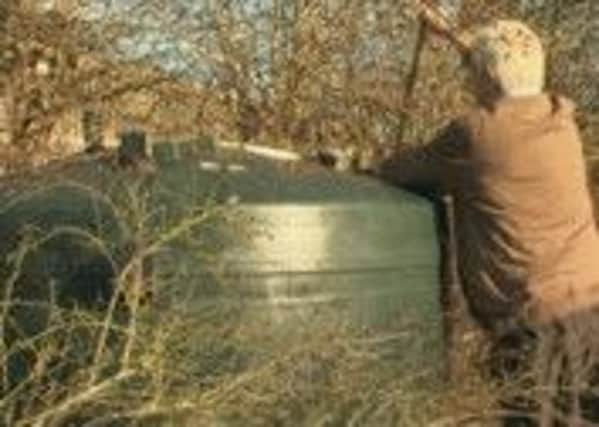Saving money on heating


The first step to saving energy from heating is to understand your current system. Nearly all homes in the UK have either a central heating system – a boiler and radiators - or they use electric storage heaters.
Central heating – a boiler and radiators is the most common form of heating in the UK. A single boiler heats up water that is pumped through pipes to radiators throughout the house as well as providing hot water to the kitchen and bathroom taps.
Advertisement
Hide AdAdvertisement
Hide AdGas, oil and LPG boilers may be combination (combi) boilers, in which case they heat the hot water as it is needed and don’t need to store it. Otherwise, the boiler heats up water and it is is stored in a hot water cylinder that then feeds the taps.
If you have a system like this, you have plenty of options for energy-saving improvements: Replace your boiler with a newer, more efficient model; Fit better controls for your space and water heating - and use them to make sure your boiler only provides heat where and when you want it; Switch to a cheaper or lower carbon fuel or technology. Find out about renewable technologies for generating electricity and heat.
Make any insulation and draught-proofing improvements that you can.
Using chemical inhibitors in central heating systems can maintain their efficiency – helping to save money on heating bills and reduce your energy consumption.
Advertisement
Hide AdAdvertisement
Hide AdCorrosion deposits in an older central heating system can cause a substantial reduction in the effectiveness of the radiators, and the system as a whole – up to a 15% reduction. The build-up of scale in heating circuits and on boiler components can cause a reduction in efficiency too. Using an effective chemical inhibitor can decrease the corrosion rate and prevent the build-up of sludge and scale – preventing system deterioration and helping to maintain efficiency. Typically, it can increase boiler efficiency by around 3%.
Condensing boiler or not?
Since 2005 virtually all gas boilers that have been fitted in the UK have been more efficient, condensing boilers. Condensing boilers have bigger heat exchangers that recover more heat from the burning gas, making them more efficient. You can tell if your boiler is a condensing boiler with a few simple checks:
If the flue is made of plastic, you have a condensing boiler. If it is made of metal you probably haven’t.
If your boiler has a plastic pipe coming out of the bottom of the boiler, through the wall and into a drain, then it is a condensing boiler.
Advertisement
Hide AdAdvertisement
Hide AdIf you have a gas boiler and it was installed after 2005, then it is almost certainly a condensing boiler.
If you have an oil boiler and it was installed after 2007, then it is almost certainly a condensing boiler.
If you don’t already have an efficient condensing boiler, consider replacing your boiler with a newer, more efficient model.
Combi or regular?
Central heating boilers can be combination or regular. They heat the radiators in exactly the same way, but provide hot water for the taps in different ways: a combi (or combination) boiler provides hot water directly, whenever it is required, and does not need a hot water cylinder; a regular boiler provides hot water when the programmer tells it to, and then stores it in a hot water cylinder until it is needed.
Advertisement
Hide AdAdvertisement
Hide AdSo if you do not have a hot water cylinder, you have a combi boiler.
A regular boiler is actually more efficient than a combi at producing hot water in the first place, but some heat is inevitably lost from the hot water cylinder, so a combi may be more efficient overall.
For more information contact http://www.energysavingtrust.org.uk/Heating-and-hot-water/Saving-money-on-heating